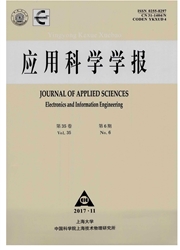
欢迎您!东篱公司
退出

 中文摘要:
中文摘要:
现有动态功耗管理预测性策略基于部件空闲时间前后的关联性进行预测,在系统随机服务请求环境下面临失效.该文从概率统计的角度提出基于空闲时间能耗期望的预测策略,该策略使部件在空闲时进入空闲时间能耗期望值最低的模式,并从理论上证明了比方法具有最优的节能效果.实验结果表明,在系统服务请求的指数分布与Pareto分布下,与传统预测性策略相比,该策略获得了更低的部件平均功耗.
 英文摘要:
英文摘要:
Existing predictive dynamic power management(DPM) policies based on correlations of consecutive idle times are ineffective under stochastic service requests. In view of statistics, this paper proposes an energy expectation based (EEB) predictive policy. EEB makes components into a mode of lowest energy expectation of idle times. It is shown that the method optimizes energy saving. Simulation results show that, under exponential distribution and Pareto distribution, EEB acquires lower power of component compared with traditional predictive policies.
 同期刊论文项目
同期刊论文项目
 同项目期刊论文
同项目期刊论文
 期刊信息
期刊信息
